Touring Abroad: Buyer's Guide And Advice
Touring America is one thing. Expanding your range to include Canada and Mexico is another. But for truly leaving your comfort zone behind, nothing beats putting an ocean between you and home. Whether your foreign country of choice be Africa, Australia, Japan or one or many of the Eastern or Western European countries, touring abroad is an experience tailor-made for motorcycle travel, largely because the rest of the world is more inviting to motorcyclists. You’ll return not only with life-long memorable experiences but also with a new perspective about motorcycling.
Preparation is key to a smooth, traveling-abroad experience. Many of the tools and words of advice from this month’s previous Guides apply here:
- Don’t Forget Your Passport
- Vehicle Insurance
- Vehicle Permits
- Signals Can Mean Something Else
- Some Simple Metric Conversions
- Can You Hear Me Now?
- Dolla Bill, Y’all
- Make A Plan And Share It
- Let Someone Else Do All The Hard Work
- Atlas Rugged
- Stranded Operating Procedure
- Bring Snacks
- Official Tourism Persons
- Social Mediate
- Lead with a Smile
- Take your time and enjoy
- Good gear is worth it
- Travel light
We’ll now pinpoint specificities that’ll help when you’re a very long way from home. Cue Wizard of Oz theme song.
The Right Side Of The Road
That’s not me riding on the wrong side of the road. The above photo was snapped in the Scottish Highlands during the press launch for Triumph’s then-new 2013 Trophy. Riding legally on the side of the road with which you’re unaccustomed is one of numerous possible adaptations you’ll need to make when touring a foreign country. The majority of countries drive to the right, but Australia, India, Japan, UK, as well as many others, like to keep things interesting. Here’s a useful reference for verifying which side of the road the laws of the country you’re visiting consider the correct side. www.worldstandards.eu.
Sign Says
Good thing the color red universally means stop and green universally means go, stop signs universally have eight sides and warning signs three. However, traffic signs will vary by country, which can be very difficult if you’re traveling across Europe where a sign’s meaning may be interpreted differently from country to country. Don’t freak out, most times common sense will prevail but if you’re unsure, stop, find someone who speaks your language, and ask.
Road Etiquette
Unlike the lethargy with which most Americans adhere to traffic laws, other countries, Germany for instance, are very serious about obeying the rules of the road. Merge onto the autobahn then park in the left lane with cruise control engaged, and you’ll wind up spaetzles in the grill of some herr’s Porsche. Motorcyclists must always be vigilant, but never more so than when traveling in unfamiliar territory. Observe those around you and follow the pack. Until you understand the intricacies of what is, and what’s not acceptable, in terms of road etiquette, it’s best to emulate those who do.
Ship or Rent
Shipping your motorcycle overseas can be a lengthy, expensive and risky proposition. If you’re hellbent on sharing the experience with your two-wheeled best friend, contact a company such as Schumacher Cargo Logistics to determine your international shipping needs. Then double and triple check your insurance coverages. If you’re okay leaving your beloved behind in lieu of a temporary rental, you’re in luck because Europe has an abundance of motorcycle brands and models available to suit any kind of rider and riding style. Renting a bike sure seems to be the better – by that we mean easier and cheaper – way to go when it comes to international motorcycle touring. Rentals are available through a multitude of companies. One of the most comprehensive is AdMo, which offers motorcycle rentals around the world. Familiarize yourself with the rental bike before pushing too hard, and remember that your braking distances will be longer if you’re carrying a lot of gear.
Personal GPS Tracker
A personal GPS safety tracker serves a multitude of purposes. First and foremost, it’ll work where cellphones don’t – a pretty important clause if,say, you’re touring the Mongolian border. A device such as SPOT “provides location-based messaging and emergency notification technology that allows you to communicate from remote locations around the globe. It offers custom tracking interval options and motion-activated tracking.” With the push of a button you can provide your GPS coordinates to local response teams, check-in with family and friends to let them know you’re okay, alert your personal contacts that you need help in non-life-threatening situations, allow others to follow your progress online in near real-time.
Sweet Dreams
Your adventure begins in a small, uncomfortable airplane seat, 32,000 feet up traveling at 600 mph. After flying for an ungodly amount of time, with maybe a layover in between, you’ll land somewhere fantastic where the local time is 2 pm and your hometown time is 2 am. Depending on your ability for in-flight sleep, you may feel rested, but your internal clock is f*&ked. Prepare for jet lag by allowing yourself a day to reset your sleeping pattern. Sleeping aides will help force the issue. Editor Duke recommends taking a melatonin supplement and an over-the-counter sleeping pill when it’s nighttime at your destination. Also remember to take breaks during your day trips. Riding a motorcycle demands your full attention, which will admittedly be compromised by your ogling all the pretty foreign stuff passing through your field of vision. Keep yourself and those around you safe by having your mental capabilities fully rested and operating at 100%.
International Medical & Trip Cancellation Insurance
International medical insurance covers you for emergency medical, evacuation and repatriation while traveling outside your home country. Emergency medical evacuations will get you out of a remote area and transported to a place where you can receive proper medical care, while repatriation coverage ensures your body is properly transported home or to a nearby funeral home.
Travel medical insurance generally provides for:
- Reimbursement for unexpected medical and dental costs
- Help obtaining emergency medical transportation when you are injured.
- Payment for emergency medical evacuation services, including medical care
- Emergency travel assistance to help you locate a local medical facility
- Accidental death and dismemberment to help take care of your family if you are seriously injured or killed while traveling
If you plan on taking an overseas trip, the expense of such an endeavor requires you to consider trip cancellation insurance. Trip cancellation (and trip interruption) insurance provides reimbursement of prepaid nonrefundable costs in the case of a cancellation or interruption due to a covered reason. With trip cancellation insurance, an unexpected occurrence such as illness, a visa or passport delay, business conflict, etc., will not cause you to forfeit a large sum of money.
Tourist Visas
Many countries require you to first obtain a visa prior to entering. A visa is an official government document temporarily authorizing you to be in the country you are visiting. The granting of a tourist visa oftentimes requires visitors to have at least six months of time prior to the passport expiring. Turkey, for example, requires a tourist visa and eight months of time on a passport. Visas can take a long time to acquire, depending on the country you’re wanting to visit. Information about visas for individual countries as well as links to official visa sites can be found at the U.S. Passports & International Travel website.
Vaccines & Immunizations
Malaria, Yellow Fever, Hepatitis A, Typhoid, etc., etc. As if motorcycling isn’t dangerous enough, there’s no lack of microscopic ways in which to risk your health when traveling abroad. Did you know there’s a “meningitis belt” in sub-Saharan Africa? Most are preventable by way of pills or injections. Make sure to research what’s trying to kill you prior to your departure at the U.S. Travel website mentioned above or at the CDC website wwwnc.cdc.gov.
A former Motorcycle.com staffer who has gone on to greener pastures, Tom Roderick still can't get the motorcycle bug out of his system. And honestly, we still miss having him around. Tom is now a regular freelance writer and tester for Motorcycle.com when his schedule allows, and his experience, riding ability, writing talent, and quick wit are still a joy to have – even if we don't get to experience it as much as we used to.
More by Tom Roderick



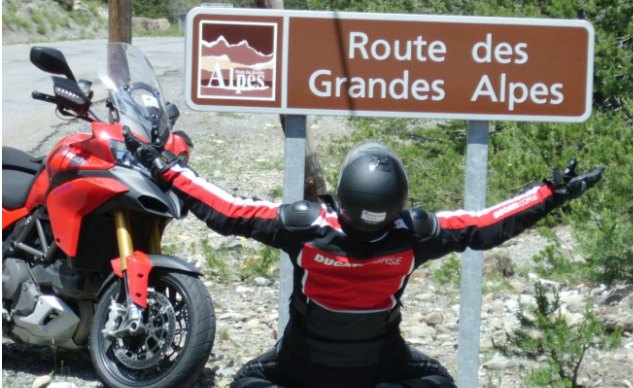
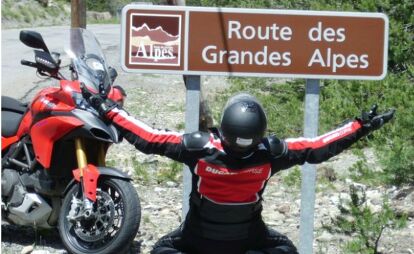




















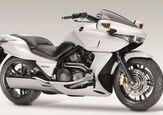


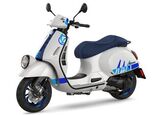
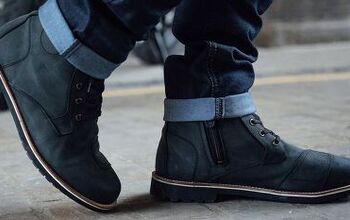

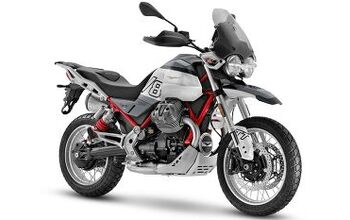
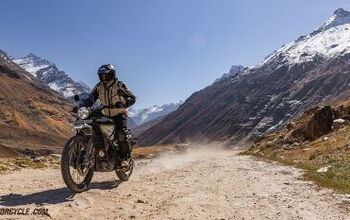


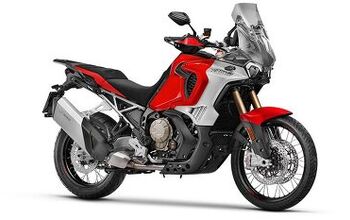



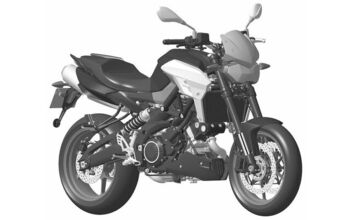





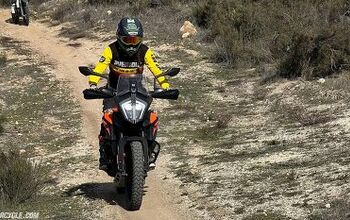

Comments
Join the conversation
Motorcycle rental in Europe is ludicrously expensive. Having a decent touring rig will cost you something about 800-900 euro a week with 1500 kilometers limit. And somehow there is virtually no difference whether you get r1200rt or k1600gtl... Then again, don't forget 2k euro insurance franchise. It's a hard deal considering that i've just returned from 5-countries 9-days euro trip in a rental car for just 1k euro including everything (yes, 4 people, but still...).